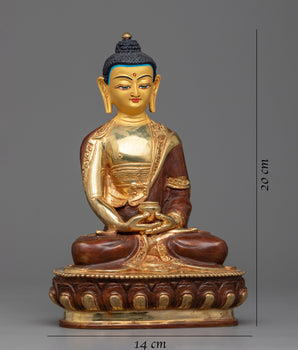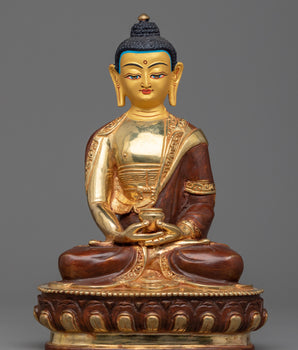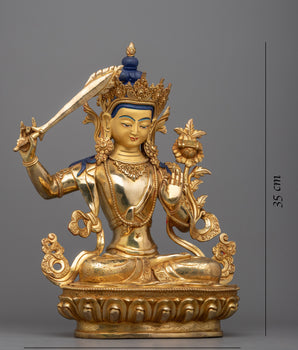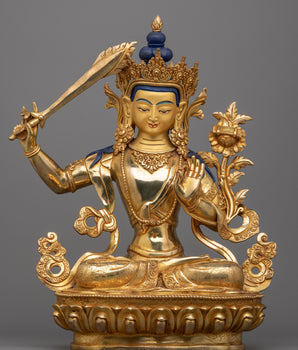Tara Statue
Tara: The Compassionate Goddess in Tibetan Buddhism
Background and Significance:
Tara, also known as "Arya Tara" or "The Liberator," is revered in various Buddhist traditions, particularly within Tibetan and Vajrayana Buddhism. As a Bodhisattva, she embodies enlightenment and chooses to remain in the world, aiding sentient beings on their path to liberation. Tara is synonymous with compassion, protection, and the swift removal of obstacles hindering enlightenment.
Tara's significance lies in her accessibility to practitioners and her embodiment of compassion. Often referred to as the "Mother of all Buddhas," she is believed to provide boundless support to those seeking her guidance. Renowned for her methods of overcoming fear, sorrow, and adversity, Tara plays a central role in the spiritual lives of many Buddhists.
Attributes and Iconography:
Tara manifests in various forms and colors, each symbolizing a unique aspect of her compassionate nature. Two prominent forms are Green Tara and White Tara.
Green Tara: With a green complexion, Green Tara signifies her ability to dispel hardships swiftly. Poised to rise and aid those in need, her left hand forms a protective gesture (abhaya mudra), while her right hand makes a wish-granting gesture (varada mudra). Green Tara is associated with protection and compassionate action.
White Tara: Portrayed with white skin symbolizing longevity and purity, White Tara often holds a white lotus, signifying spiritual awakening. Revered for infusing peace and tranquility into practitioners' lives, she is associated with healing and longevity. Tara can manifest in other colors, each with significance, such as Red Tara (power and magnetism) and Black Tara (protection from dark forces and fear).
Associated Stories and Beliefs:
While various Buddhist traditions offer diverse origin stories for Tara, a standard narrative describes her arising from the tears of Avalokiteshvara, the Bodhisattva of Compassion. Born from the tears he shed in response to worldly suffering, Tara vowed to assist every sentient being on their journey to enlightenment.
Renowned for the practice of the 21 Taras, each representing a facet of her compassionate nature, practitioners recite prayers or mantras associated with these Taras to seek blessings and assistance. Tara, the Compassionate Mother of Enlightenment, is revered in Buddhist practice, particularly in Tibetan Buddhism and the Vajrayana school. Cherished for her compassion, swift response to suffering, and accessibility to practitioners, Tara symbolizes inspiration and guidance in overcoming life's challenges and progressing toward spiritual enlightenment.
Your cart is currently empty.
Start Shopping

































































